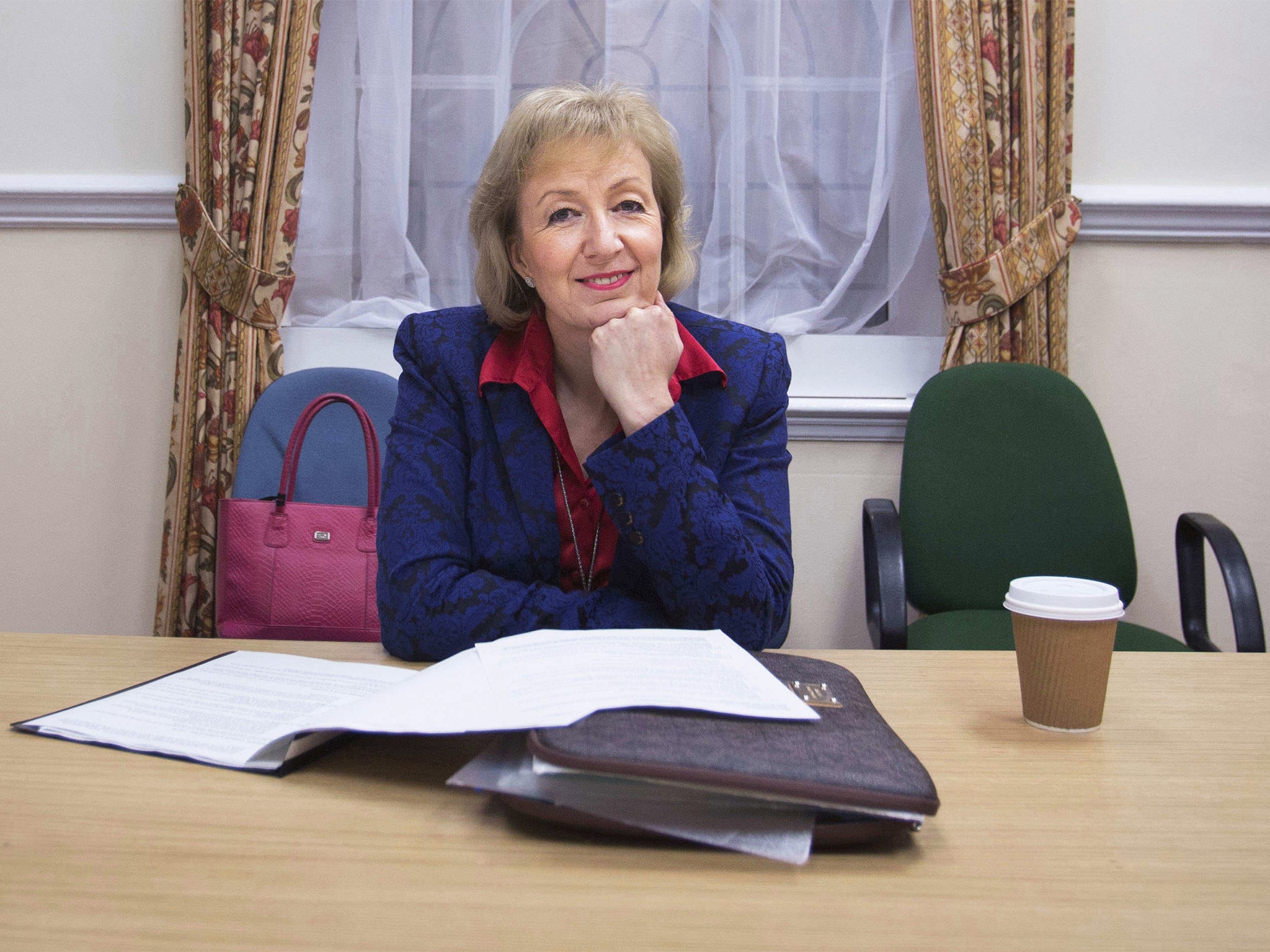Finally, we have two women in a leadership race – but one of them still wants to play the gender card
Mother-of-three Andrea Leadsom believes she is playing her trump card over Theresa May, and it's a depressing spectacle to watch

Your support helps us to tell the story
From reproductive rights to climate change to Big Tech, The Independent is on the ground when the story is developing. Whether it's investigating the financials of Elon Musk's pro-Trump PAC or producing our latest documentary, 'The A Word', which shines a light on the American women fighting for reproductive rights, we know how important it is to parse out the facts from the messaging.
At such a critical moment in US history, we need reporters on the ground. Your donation allows us to keep sending journalists to speak to both sides of the story.
The Independent is trusted by Americans across the entire political spectrum. And unlike many other quality news outlets, we choose not to lock Americans out of our reporting and analysis with paywalls. We believe quality journalism should be available to everyone, paid for by those who can afford it.
Your support makes all the difference.The Conservative leadership race has boiled down to two women: Andrea Leadsom versus Theresa May. After years of being subjected to male rule, this is a fantastic moment to witness: at a time of political crisis we are seeing not one woman, but two, take the stand.
In politics, the Tories are leading the way in gender equality. A second female Prime Minister for the party is now a certainty, while its Scottish leader Ruth Davidson, who has turned around the party’s fortunes north of the border and proved so capable during the EU referendum campaign, is female and a lesbian. These are tough times indeed for Labour when the “nasty party”, with its supposed regressive social attitudes, is beating it so roundly at its own game.
But there’s something amiss. This could have marked a crucial moment for Westminster: with only women left in the race, the matter of gender could have been put aside for both candidates in order to focus on policies and idea – a very rare treat, as any woman in politics knows.
Of course, without the success of feminism neither May nor Leadsom would be where they are today, but we’re now much close to an age of gender parity should take prominence – and anyway, playing the gender card was never going to prove much of a tactic in this leadership contest.
But that’s exactly what Andrea Leadsom is doing. She has repeatedly pointed out that she is a mother of three. How does that help us to understand her approach to handling the delicate Brexit negotiations, or how she will stabilise the economy, or any of the other huge challenges that face us in the aftermath of the EU referendum?
The one thing we have learned, from her interview with the Telegraph earlier this week, is that she does have a good, traditionally feminine coping mechanism when things get tough: “When in doubt, cook a Sunday roast, get the family around you and you’ll feel fine afterwards.”
It appears that Leadsom believes she is playing her trump card over May – who has no children – to style herself as the more 'womanly' candidate, the more likely to fulfil the famous Thatcherite promise: “If you want something said, ask a man; if you want something done, ask a woman.”
I dislike hearing references to Thatcher during this campaign. It is frankly meaningless to compare two politicians based on the fact that they happen to share a gender; we simply do not do this for the male leaders. Leadsom, however, seems comfortable with this tactic too.
“As a person, she was always kind and courteous and as a leader she was steely and determined," she says of Thatcher. "I think that’s an ideal combination – and I do like to think that’s where I am.” And she rounds it off with the killer ‘but’ line: “I’m just a normal person. For me, family comes first.”
Leadsom has been described as having typically Thatcherite views, just like her protégé Iain Duncan Smith, and is actively using that that comparison to boost her campaign with the right of the her party. No wonder so many MPs pushed her to stand: they still worship the ground that Thatcher walked on, and long for a stricter, more right-wing approach, putting an end to the failed modernisation project started out by David Cameron.
Just because she’s a woman, though, doesn’t mean she’s going to be the strongest leader.
May, on the other hand, has campaigned in a tone we might have hoped would characterise the contest overall. She has not discussed her sex – why would she? It’s irrelevant – but has focused on her (vast) experience.
Her six years as Home Secretary stand behind her, and her maiden speech as a candidate was exemplary in discussing how she had negotiated with the EU in the past. May’s experience serves her well in this race – her track record of standing up to the police and providing support to Hillsborough justice campaigners, for example.
Leadsom has her own strengths. She has worked in the finance and understands global economics. She held her own during the EU referendum debate, providing measured comments, and did not embroil herself in the Boris Johnson/Michael Gove egotistical race for power. But despite all this, she is falling back on the tired old gender card in a contest where it’s less meaningful than ever before – it’s disappointing indeed to watch.
I want to concentrate on what Leadsom and May have to offer as candidates, not as women. Let’s put aside the people, and look at the policies.
Join our commenting forum
Join thought-provoking conversations, follow other Independent readers and see their replies
Comments